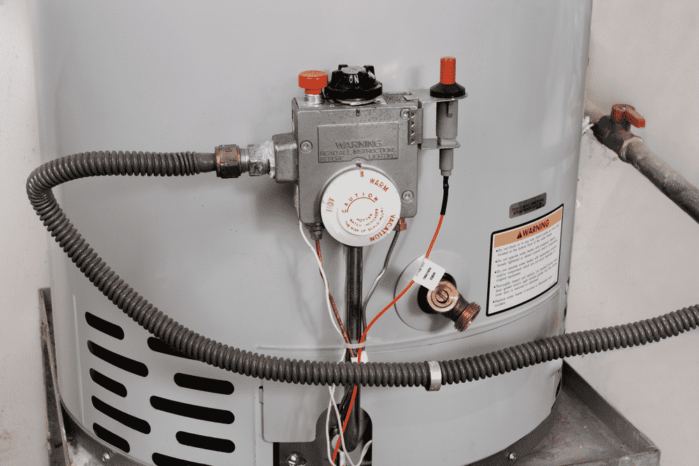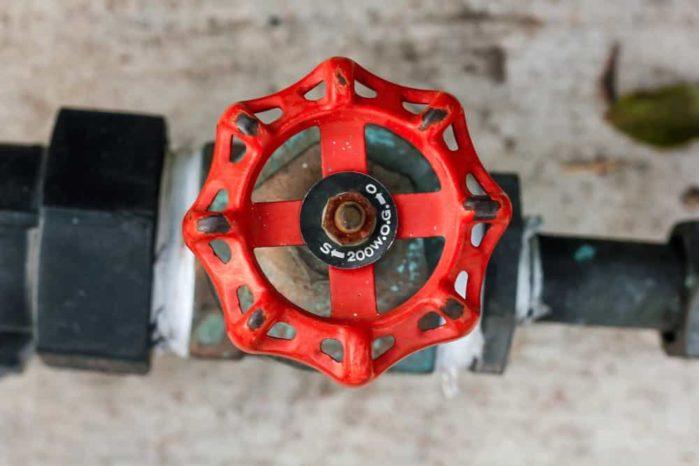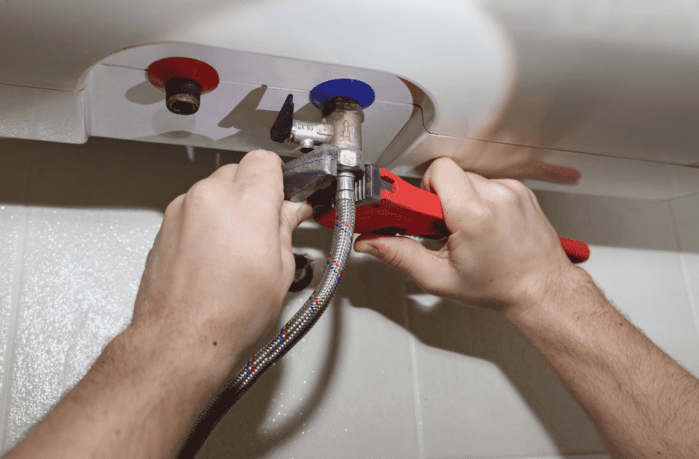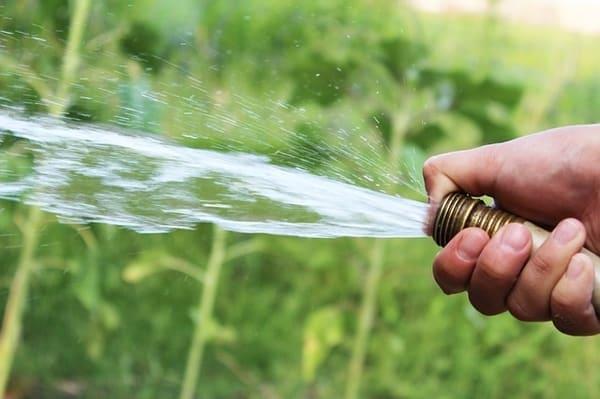
Do NOT Ignore These Best Water Heater Safety and Maintenance Tips

Water Heater
Your water heater is important for your everyday home life — for cleaning, sanitizing, bathing and much more. It’s not an appliance that you may normally think of as needed regular preventative maintenance, but even the best water heaters on the market need some TLC now and then. If the appliance does fail one day, you could pay dearly to have to repair or replace it.
Where do you start when it comes to keeping your water heater running safely and reliably? Read on to learn the answer!
Turn down the heat.

Regular Water Heater
Keeping water heaters at a high temperature not only causes undue wear and tear on your water heater, but it can add up to a higher energy bill. Most water heaters are set somewhere around 130 degrees Fahrenheit. Professionals suggest turning it down to between 115 and 120 degrees. Lower temperatures cut down on your energy expenses, keep you and your family from getting scalded by overly hot water and could prevent your water heater from overheating.
Strap it down.
Earthquake straps are particularly important if you live in an earthquake zone. Even if you’re in an area without earthquakes, it’s not a bad idea to invest in the straps. Keeping the water heater stable and upright during a seismic event is important to prevent flooding and — with gas water heaters — severed gas lines and explosions.
Mind your T&P.

Water shut off valve
The temperature and pressure valve is a critical component to your water heater and its overall health and safety. In order to safely operate, a water heater must release pressure as it heats water. This built-up pressure escapes through the temperature and pressure valve. To make sure the valve is in proper working order, do the following:
- Lift the lever and snap it back into place.
- You should hear a gurgling noise coming from the bottom of the tank, which means the water is draining correctly.
- If you don’t hear any noise, it may be time to replace the valve. It’s best to leave a repair like this to the professionals.
Keep it clean.

Water heater repair
Keep the area around the water heater free of debris, particularly of the flammable variety. It should come as no surprise that a water heater generates a significant amount of heat. In the off-chance something ignites near the water heater, it could potentially cause pressure buildup and an eventual explosion, making an already bad situation much worse.
If your water heater is in the garage or near flammable liquids like certain pesticides, paint thinner, oil or gasoline, consider elevating the water heater at least 18 inches off the floor. This helps prevent vapors and liquids from igniting if they spill on or near the floor.
If you need to use flammable aerosols or liquids in the same area where you keep the water heater, be sure to turn out the pilot light temporarily.
Insulation is your friend.
You can save even more money on your energy bill if you insulate your water heater. According to the US Department of Energy, for about an hour-and-a-half worth of work and $30 in supplies, you can save up to 16 percent on your heating bill every year.
The insulation prevents you from losing energy to standby heat. Standby heat is basically energy expended when a water heater keeps its stored water above room temperature.
To install insulation to the pipes and the water heater itself, take the following steps:
- Turn off the water heater.
- Cut insulation to fit around the pipes and the water heater.
- Tape the insulation into place.
- Cut the blanket of insulation to ensure proper access to controls and valve.
- Important note:Do not cover the top of oil or gas water heaters.Always keep the insulation away from the burner.
- Once the proper holes are cut, make sure everything lines up properly and reinforce the tape, securing it in place.
- Turn the water heater back on. Important note: If you are insulating an electric water heater, do not turn your heater above 130 degrees Fahrenheit.
Don’t forget to flush.

Water hose
As time goes on, your water heater will have a buildup of sediment, particularly calcium carbonate, a mineral found in water supplies that solidifies because of the water heating process. This mineral can wear your tank out and cause it to not run as efficiently as it could, thus shortening its lifespan.
Follow these steps to flush your tank properly.
- Important note: If you have an electric water heater, turn off the power.
- Put a bucket under the drain valve or, if you’re close to the outdoors, connect a hose and run it to a safe area.
- Turn the release valve carefully. Important note: This water will be extremely hot. Be very careful. Also, if you see that the water release valve is corroded or considerably worn, consider contacting a professional to ensure it’s safely handled.
- Once you’ve drained a few gallons, shut the valve off.
You should perform at least a small flush on the water heater at least once a year, possibly more often if you live in an area where the water is particularly hard.
With any of these preventive maintenance steps, if you feel a repair or maintenance task is beyond your capabilities, please consult a professional.
Book a checkup.

Water Heater
While there’s a lot you can do to extend the life of your water heater, it’s always a good idea to have a professional plumber check on the health of the water heater once a year. A professional will be able to help you make decisions as to when to maintain your current heater or shop around for a new one.
Resources — Pippin Brothers, Nationwide, This Old House, US Department of Energy, Water Heater Rescue
